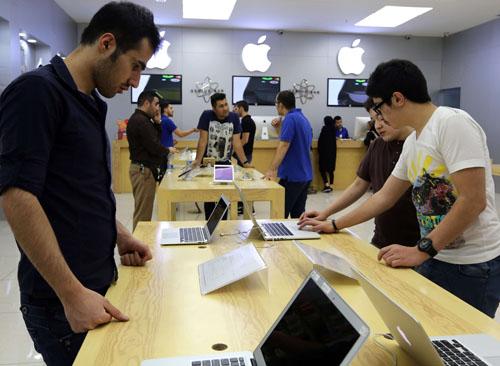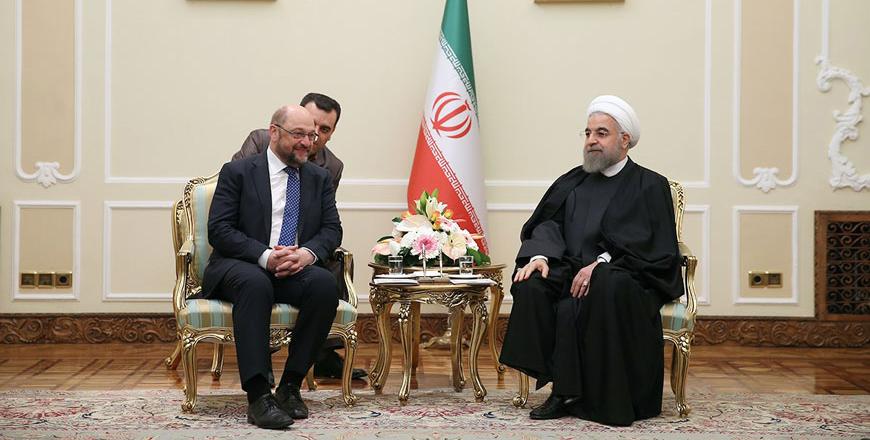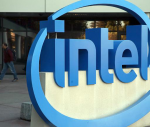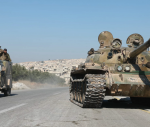You are here
Hopes for shopping revolution as malls sprout in Iran
By AFP - Sep 18,2015 - Last updated at Sep 18,2015

People shop at a store selling Apple products in the north of the Iranian capital Tehran on August 19 (AFP photo)
TEHRAN — The traditional bazaar has long been the place to shop in Iran but despite years of sanctions a new generation has discovered a vastly different consumer experience: blatant, unapologetic Western-style consumerism.
Instead of meandering markets echoing with the sound of haggling, huge shopping malls boast multiple floors of retail space, enormous underground parking lots and children's play zones.
Developers have broken ground on an estimated 400 modern shopping malls across Iran in recent years — 65 of them in Tehran alone.
They have transformed the shopping habits of many Iranians, but now an even bigger change seems on the way after the country's nuclear deal with world powers.
Experts say the expected lifting of sanctions imposed over Iran's disputed nuclear programme will open the door to a potential retail bonanza, especially for imported Western goods.
"Iran has a well-educated population with an unquenched thirst for foreign-branded consumer goods," PricewaterhouseCoopers said in a report earlier this year, highlighting the buying potential of the country's youthful population.
"People are looking for variety and want more choices," said Mohammad Gholi Yousefi, an economics professor at Allameh Tabatabai University in Tehran.
"When the sanctions are lifted and more investors enter the market, Iran is expected to become the commercial centre of the region," he said.
Even before the lifting of sanctions, Iranians have been embracing shopping centres like the Palladium Mall in Zaferanieh, one of Tehran's most upmarket neighbourhoods.
'To another level'
Besides 11 floors of retail space and 1,000 underground parking spots it boasts a food court and restaurant where patrons relax by gazing at the scenic snow-capped Alborz mountains to the north of Tehran.
"Because there are so many shops, you have more options and the goods are more up-to-date and fashionable," said Paria Goudarzi, 19, dressed in a chic white coat outside Palladium.
"Today, we came to eat at the food court. You can park your car comfortably and have great food," she said.
"I hope the situation will be even better after sanctions."
Sam Kamalvand, a civil engineer shopping at the Palladium, said he was looking forward to having more options once sanctions are lifted.
"If sanctions go, and more brands come, definitely the shopping will rise to another level here," he said.
While Iran has not released recent figures on consumer spending, many Iranians have the disposable income to shop and malls are considered profitable.
With sanctions making investments in other areas difficult, many of the country's biggest investors including banks have turned to shopping malls, Yousefi said.
"The banks used to put people's investments in housing projects, but with stagnation in that sector, they turned to malls which are still profitable," he said.
Two Iranian shopping centres — one in the central city of Isfahan and another in the southern city of Shiraz — rank among the 10 largest in the world in terms of sales area, behind giant malls in China but ahead of those in Dubai, according to a ranking published in August by magazine Business Benchmark Middle East.
The only thing missing has been the plethora of Western brands much-desired in the country of 78 million despite historic tensions with the West.
Such goods are available but must be smuggled in through middlemen in places like Turkey or Dubai so are sold at vastly inflated prices.
Iranian businessmen like Majid Lak — whose Caspian Mode Group represents brands including Turkish apparel-maker LC Waikiki and Italy's Benetton — see big opportunities if Iran's trade barriers come down.
More choice, more support
"Because of the sanctions there are numerous top fashion companies in the world, many of which are either American or have a large American market, that won't deal with us," said Lak, sitting at an elaborate wooden desk and surrounded by energetic young aides.
"We still want to connect to the world."
Saeid Baghayi is a 24-year-old electronics seller at another major shopping centre that opened this year in Tehran called Charsou.
He said the lifting of sanctions will do more than just lower prices for electronics.
"We source our products through the networks we have known in recent years, some of them official and some of them not," Baghayi said.
But "we really do face problems", he added. "Spare parts get here with a lot of difficulty and at high prices."
Shoppers at Charsou, like 24-year-old fashion photographer Mohammad Metri, said they were looking forward to having more choice and better support for the products they buy.
"I choose this mall for the variety of products and better support these big shops provide. I think after the removal of trade obstacles, the quality of services would be even better," Metri said.
"Definitely, the situation will improve, especially for strong brands such as Apple, and the products will be available at cheaper prices," said another shopper, 17-year-old Sara Yousefzadeh.
Related Articles
TEHRAN — Dozens demonstrated on Monday at a rally in the Iranian capital Tehran against power cuts amid a drought, the state television webs
TEHRAN — Relations between Iran and the European Union are at a "determining stage" after Tehran's landmark nuclear deal with world powers i
Iranian investment banker Ramin Rabii says he shouted in joy when he learned that Tehran and world powers had reached a deal which promises to lift economic sanctions on Iran. Then he called colleagues to discuss the business implications.















